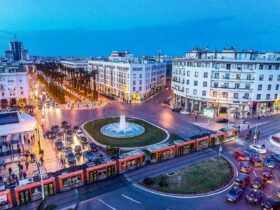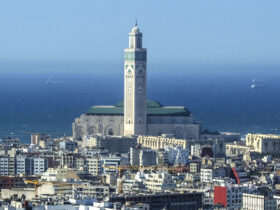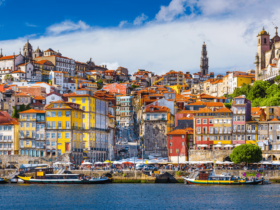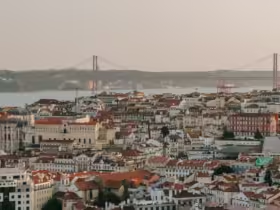The FIFA World Cup 2030 marks a centennial celebration of football’s most prestigious tournament. With matches spread across Spain, Portugal, Morocco, Uruguay, Argentina, and Paraguay, this edition promises to be a global festival of football and culture. This guide provides you with all you need to know about the host countries, their unique attractions, and how to make the most of your visit during the tournament.
Explore the rich cultures and exciting football atmospheres of the host countries for the FIFA World Cup 2030: Spain, Portugal, Morocco, Uruguay, Argentina, and Paraguay.

Key Dates for the FIFA World Cup 2030
The FIFA World Cup 2030 is scheduled to kick off with historical celebrations and matches across the hosting South American countries—Uruguay, Argentina, and Paraguay. Each will host an opening match as follows:
- Opening Matches: June 8-9, 2030 (Saturday-Sunday)
- Official Opening Ceremony and Main Opening Game: June 13-14, 2030 (Thursday-Friday)
- World Cup Final: July 21, 2030
For more details, visit the official FIFA website and FIFA’s official announcement.
Host Countries Overview
This tournament will be co-hosted by Spain, Portugal, and Morocco in Europe and North Africa, with Uruguay, Argentina, and Paraguay hosting celebratory matches in South America to honor the 100th anniversary of the World Cup.
Spain: A Fusion of Tradition and Modernity
Spain, with its rich football heritage and modern facilities, is set to play a central role in the 2030 World Cup. Key cities like Madrid and Barcelona are expected to draw large crowds. Spain boasts an impressive average stadium capacity of over 50,000, with top facilities like the Camp Nou and Santiago Bernabéu. The country’s robust transportation network, which includes extensive rail links and two of Europe’s busiest airports, makes navigating between venues effortless.
Portugal: Historic Scenery and Passionate Fans
Portugal, hosting its first World Cup, offers a mix of historic charm and enthusiastic football culture. The country is known for its scenic landscapes and warm Mediterranean climate, which makes it a perfect tourist destination year-round. Lisbon and Porto will be at the heart of the action, providing fans with a chance to explore UNESCO World Heritage sites, enjoy local cuisine, and experience vibrant nightlife.
Morocco: Gateway to Africa
Morocco’s role as a host marks a significant moment as it becomes only the second African nation to host World Cup matches. Cities like Casablanca and Marrakech are set to showcase their upgraded stadiums and infrastructure. Morocco’s rich history, bustling markets, and stunning architecture are sure to captivate visitors from around the globe.
Uruguay: Celebrating Football’s Roots
As the birthplace of the World Cup, Uruguay will kick off the 2030 tournament in Montevideo, which hosted the first ever World Cup match in 1930. Uruguay’s deep football traditions and its status as a smaller, easily navigable country allows visitors a more intimate experience of the World Cup festivities.
Argentina and Paraguay: Heart of South American Football
Argentina and Paraguay will share the stage in the opening rounds, highlighting their rich football heritage. Buenos Aires and Asunción are preparing to welcome fans with their unique blend of culture, history, and football passion. From the bustling streets of Buenos Aires to the historic sites in Asunción, these countries offer a deep dive into South America’s football culture.
Planning Your Visit
When planning your trip to the World Cup, consider the geographical and climatic diversity of the host countries. June and July, the typical period for the World Cup, can vary from warm summers in Spain and Portugal to cooler winters in Uruguay and Argentina. Accommodation options will range from luxury hotels to budget-friendly hostels, catering to all types of travelers.
Travel Tips
Visiting multiple host countries will require careful planning. Visa requirements vary, with Schengen visas needed for Spain and Portugal, while separate visas may be required for Morocco, Argentina, Uruguay, and Paraguay. Currency exchange, language barriers, and local customs are also important considerations.
Conclusion
The FIFA World Cup 2030 is set to be a monumental event, connecting three continents and celebrating a century of football excellence. This guide aims to help you navigate the rich tapestoric tapestry of cultures and the spirit of football. Whether you are there to follow your national team, soak in the vibrant local cultures, or simply experience the global camaraderie that only the World Cup can offer, 2030 promises memories that will last a lifetime.









